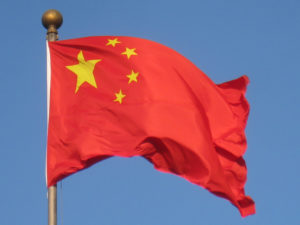I don’t usually write about subjects I disagree with Matt Yglesias on, but this piece on how Bill Clinton should have resigned over Lewinsky is sickening.
It’s not that Clinton’s actions with Lewinsky weren’t awful, it is the moral and ethical vacuum required to think that’s the issue over which he should have resigned.
Clinton gutted welfare. I guarantee that killed a lot of people and hurt way more. Clinton pushed the three strikes laws hard, which hit black communities brutally, locking people up for years for a third strike for things like stealing a bicycle. Bill Clinton engaged in punitive sanctions against Iraq which hit basic medicine, killing and hurting a lot of people. Bill Clinton pushed for the repeal of Glass-Steagall, and signed it; this was one of the causes of the 2008 financial collapse and, thus, killed and hurt a lot people.
What happened to Lewinsky was sad, gross, and wrong. But it came nowhere near the harm Clinton did with other actions.
This inability to think at scale haunts us when dealing with powerful people. What matters most is by far and away what they do as policy. One intern and a cigar is a tragedy, to paraphrase Stalin, but thousands of deaths and people locked up for decades is a statistic.
Oh, there are arguments against this: That killing and impoverishing people is the role of the US president, but that screwing around with interns isn’t, basically.
I…guess?
I actually can see the case. Some things are over the lines. Rape, for example. Or torture. But war causes both, and Bush, Jr. served out his terms, as did Obama. Heck, by some accounts Bush, rather closely supervised some of the torture in Guantanamo and enjoyed doing so.
The bottom line is that we choose our leaders in part because they are functional sociopaths–able to do great evil and sleep at night. We shouldn’t choose them that way, but for a variety of reasons, we do.
But to be concerned about one abuse of position (which was consensual, however) and not about all the vast harm Clinton did to people even more powerless than Lewinsky, to say that’s where you draw the line rather than at, say, welfare reform—I don’t know, it sticks in my craw.
About the only good argument is that people who abuse power in that manner shouldn’t be allowed near power. I agree. But by the time Lewinsky occurred, Clinton had already shown he was willing to hurt the weak and poor at scale.
It’s the statistics that matter. The individual cases only can warn you about the statistics that might follow, and they aren’t always so accurately predictive. (FDR had an affair with his principal secretary. It didn’t make him a bad President and if he’d stepped down it would have been disastrous.)
I wonder if we evolved killer apes are capable of running large civilizations in anything close to an effective and beneficial fashion. The evidence coming in is looking grim.
The results of the work I do, like this article, are free, but food isn’t, so if you value my work, please DONATE or SUBSCRIBE.


 In the West, we have not lived in rich states for over two generations.
In the West, we have not lived in rich states for over two generations.